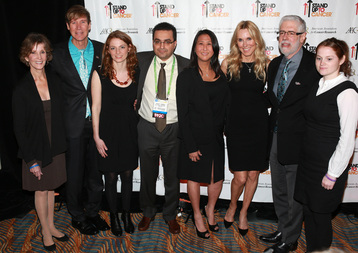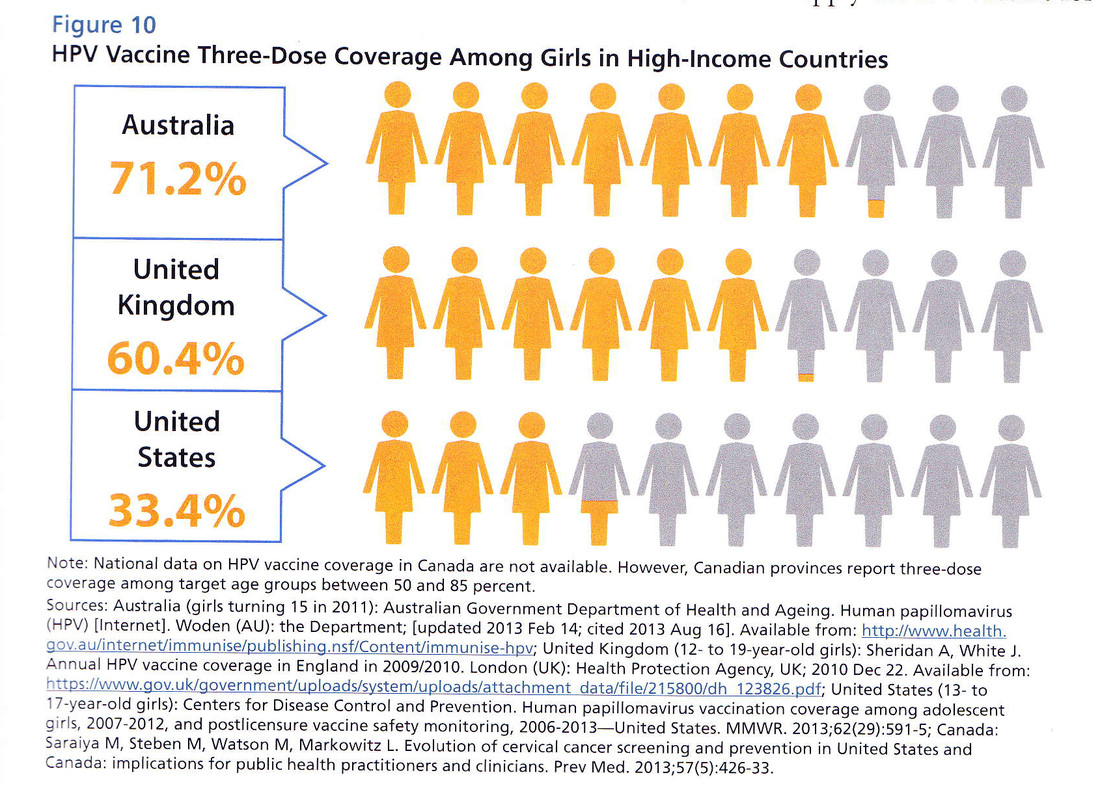
I participated in the symposia - the President’s Cancer Panel Report “Accelerating the HPV Vaccine Uptake: Urgency for Action to Prevent Cancer” – Scientific Advances to Help Achieve Policy Goals.
Nearly 1 in 4 people in the U.S. are infected with at least one strain of the human papillomavirus. HPV related head and neck cancers are on the rise. Yet, vaccines that prevent infection with the two most prevalent cancer causing types are substantially underused.
Worldwide, every year, more than 600,000 new cancer cases are caused by HPV, an infectious disease. HPV vaccines provide an effective, safe means of prevention.
In the U.S., only one-third of adolescent girls and less than 7% of adolescent boys have received all three recommended vaccines.
The CDC estimates that increasing the HPV vaccination rates from the current levels to 80% would prevent an additional 53,000 future cervical cancer cases in the U.S. among girls who now 12 years old or younger.
The Presidents’ Cancer Panel finds underuse of HPV vaccines a serious but correctable threat to progress against cancer.
The vaccine uptake is a function of initiation - the first dose, and completion - getting all three doses.
Missed opportunities on the part of the provider to communicate with both parents and children, both boys and girls, is the most important reason the U.S. has not achieved high rates of uptake. The committee recommended that Providers discuss the vaccine, that receiving the vaccine doses should be made more convenient and also that health care payers should reimburse for this cancer vaccine
Widespread adoption of the HPV vaccine requires comprehensive, targeted interventions aimed at providers, parents or other caregivers and at the adolescents themselves.
Later that day, the press event Stand Up To Cancer and the Farrah Fawcett Foundation, along with the AACR, SU2C’s Scientific Partner, with an additional gift from the HPV and Anal Cancer Foundation, announced the formation of a new research team dedicated to HPV – related cancer.
Ellis L. Reinherz, M.D., Ph.D, chief of the Laboratory of Immunobiology at Dana-Farber Cancer Institute, Boston and Robert I. Haddad, M.D. disease center leader for head and neck oncology at Dana-Farber, received a 1.2 million dollar grant.
They will lead the research to develop new vaccines and immunotherapeutic approaches for treatment of patients with HPV-associated cancers, including head and neck, anus and cervix.
“Our project involves the development of vaccines that stimulate immune cells to attack HPV-driven cancer cells,” said Reinhertz. “While we have vaccines to prevent HPV infection from taking place, these vaccines will help attack the cancers once they have already developed.”
Alana Stewart, president of the Farrah Fawcett Foundation spoke of her friend’s struggle with anal cancer. Of the research Stewart said, “I know that Farrah would be very pleased to see this project going forward.”
My presence at both events was to give a real face to HPV related cancers and to tell my personal story.
With approximately 4 minutes for each presentation and about 10 pages of notes, I could have spoken for hours. In the end what I said came from my heart and experience and the experience of other survivors whom I’ve gotten to know. I tried to tell our story.
I didn’t need to tell the researchers that HPV related cancers are everyone's problem.
“If this could happen to me, this could happen to anyone.
"There’s this view that people with HPV associated cancer did something wrong. These cancers grow in inconvenient and sometimes embarrassing places. I call it the yuck factor. As a nurse, the body has no places like that for me. Maybe that’s why I’m alive today. I lived a life of prevention. Yet, a tumor grew. How can we pick these up earlier?”
I told those assembled for the President’s Report, that I had been a polio pioneer in the mid-50s. In those days polio was visible and scary. My parents signed me up to be part of a double-blind study to test the vaccine. Can you imagine that happening today?
Perhaps, if people in the U.S. could see the ravages of HPV related cancers – hear the stories of lives forever altered, perhaps we would be eager to see to it that our sons and daughters are vaccinated against cancer.
At one end of the day was the hope of prevention, at the other the hope for the future.
“I am lucky to be alive and am grateful for the opportunity to speak out. Perhaps some day prevention and early detection won’t be a matter of luck.”
Dr. Reinherz shared some of his thoughts about what my presence meant.
“Advocacy is extremely important. We need to rid society of the mythologies and bring awareness and truth. …funding to do science will be greatly helped via thoughtful commentary, offering a patient’s personal perspective. It truly takes a village and we each have a part to perform to conquer this dreadful disease.”
Take it to heart. We are all important in this struggle.

 RSS Feed
RSS Feed
